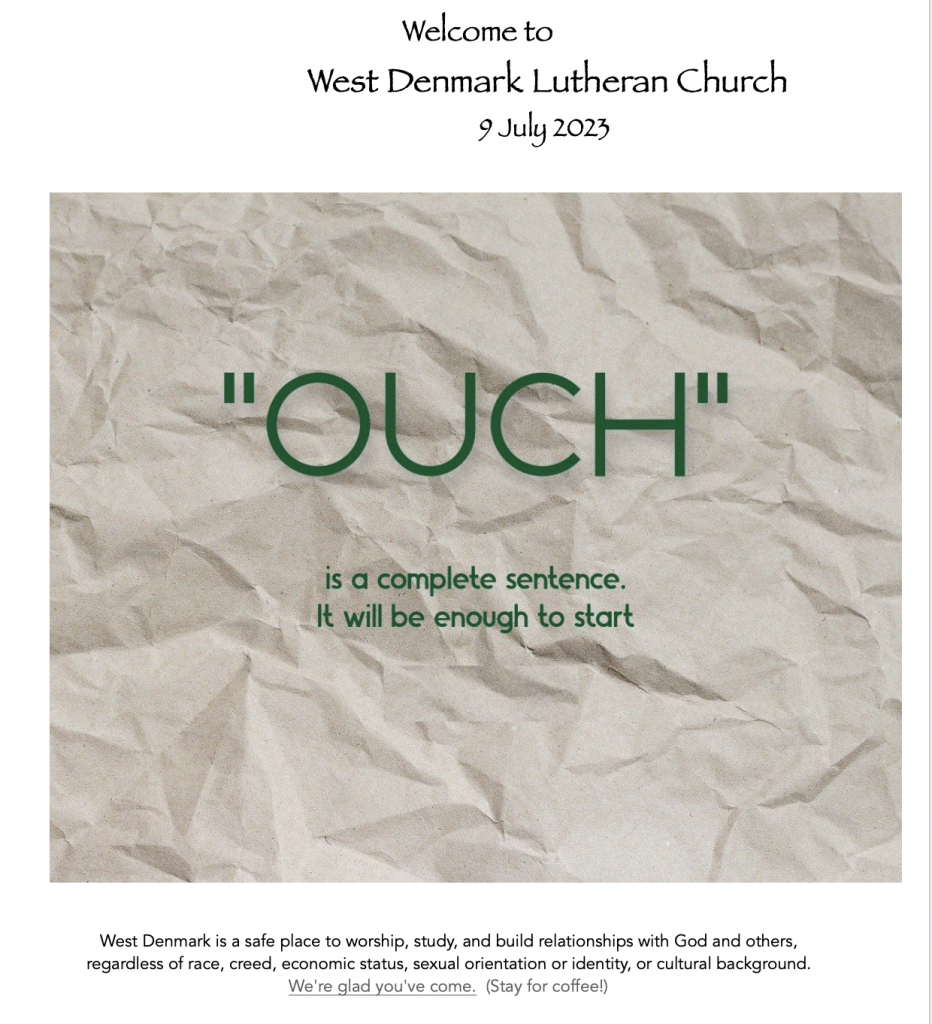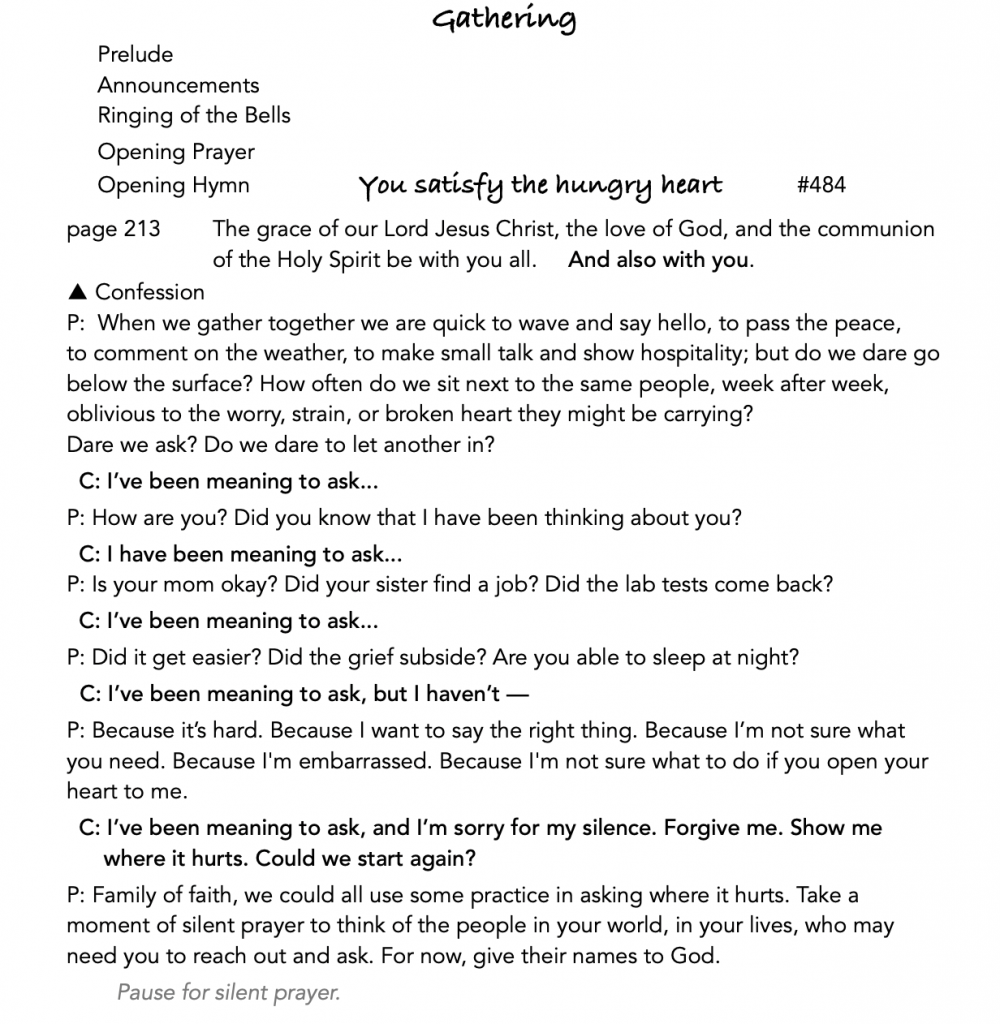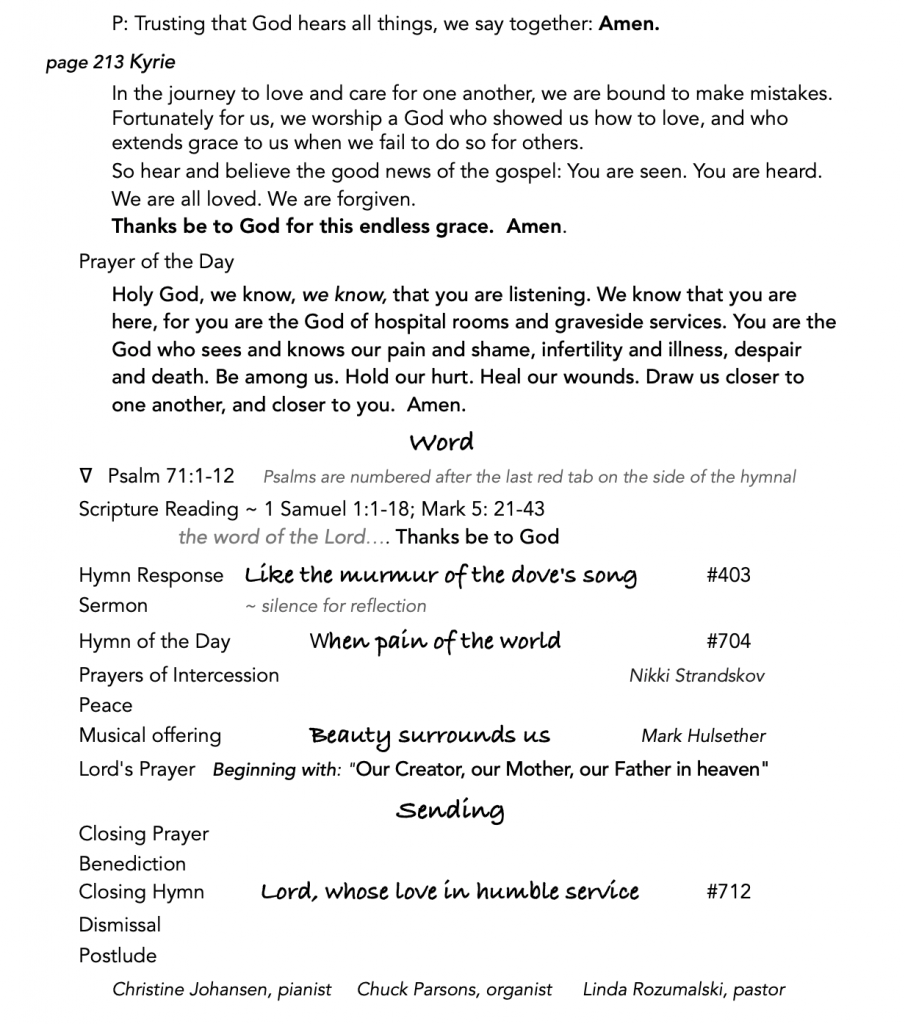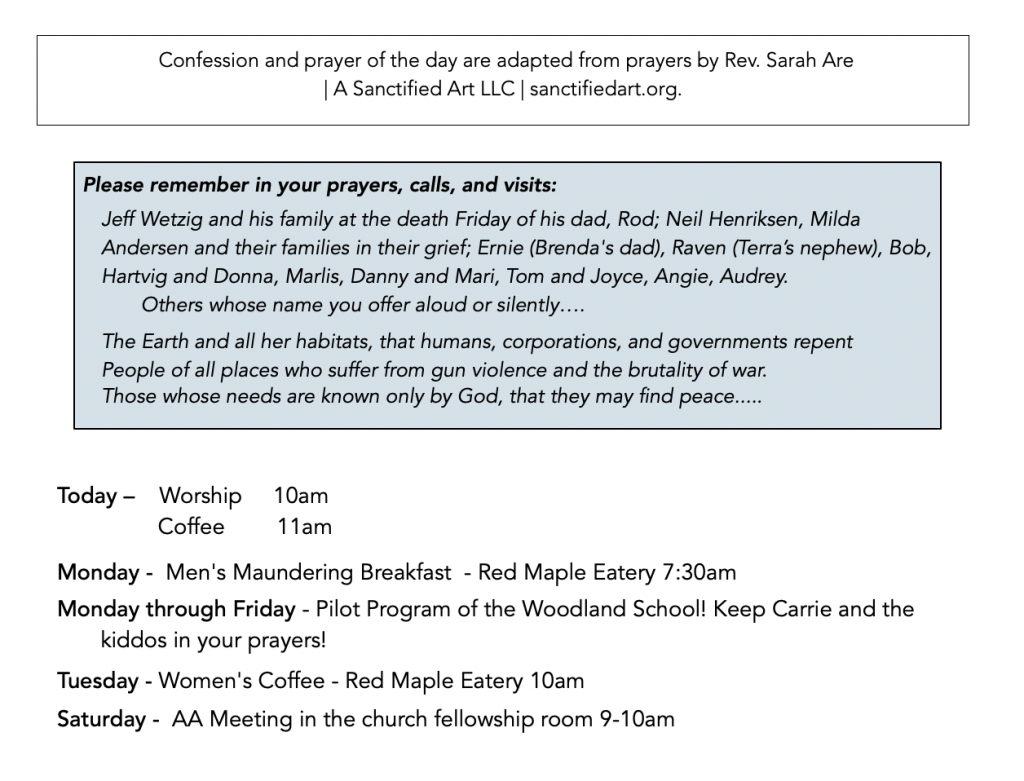


Today’s first reading comes from the Old Testament book of 1 Samuel, chapter 1: (1:1-18)
There was a certain man of Ramathaim, a Zuphite from the hill country of Ephraim, whose name was Elkanah son of Jeroham son of Elihu son of Tohu son of Zuph, an Ephraimite. 2He had two wives; the name of one was Hannah, and the name of the other Peninnah. Peninnah had children, but Hannah had no children.
3 Now this man used to go up year by year from his town to worship and to sacrifice to the Lord of hosts at Shiloh, where the two sons of Eli, Hophni and Phinehas, were priests of the Lord. 4On the day when Elkanah sacrificed, he would give portions to his wife Peninnah and to all her sons and daughters; 5but to Hannah he gave a double portion, because he loved her, though the Lord had closed her womb. 6Her rival used to provoke her severely, to irritate her, because she had no child.
7So it went on year after year; as often as she went up to the house of the Lord. Therefore Hannah wept and would not eat. 8Her husband Elkanah said to her, ‘Hannah, why do you weep? Why do you not eat? Why is your heart sad? Am I not more to you than ten sons?’
9 After they had eaten and drunk at Shiloh, Hannah rose and presented herself before the Lord. Now Eli the priest was sitting on the seat beside the doorpost of the temple of the Lord. 10She was deeply distressed and prayed to the Lord, and wept bitterly. 11She made this vow: ‘O Lord of hosts, if only you will look on the misery of your servant, and remember me, and not forget your servant, but will give to your servant a male child, then I will set him before you as a nazirite until the day of his death. He shall drink neither wine nor intoxicants, and no razor shall touch his head.’
12 As she continued praying before the Lord, Eli observed her mouth. 13Hannah was praying silently; only moving her lips, but her voice was not heard; therefore Eli thought she was drunk. 14So Eli said to her, ‘How long will you make a drunken spectacle of yourself? Put away your wine.’ 15But Hannah answered, ‘No, my lord, I am a woman deeply troubled; I have drunk neither wine nor strong drink, but I have been pouring out my soul before the Lord. 16Do not regard your servant as a worthless woman, for I have been speaking out of my great anxiety and vexation all this time.’ 17Then Eli answered, ‘Go in peace; the God of Israel grant the petition you have made to him.’ 18And she said, ‘Let your servant find favour in your sight.’ Then the woman went to her quarters, ate and drank with her husband, and her countenance was sad no longer.”
The second reading is from the gospel of Mark, the 5th chapter:
When Jesus had crossed again in the boat to the other side, a great crowd gathered round him; and he was by the lake. 22Then one of the leaders of the synagogue named Jairus came and, when he saw him, fell at his feet 23and begged him repeatedly, ‘My little daughter is at the point of death. Come and lay your hands on her, so that she may be made well, and live.’ 24So Jesus went with him.
And a large crowd followed him and pressed in on him. 25Now there was a woman who had been suffering from hemorrhages for twelve years. 26She had endured much under many physicians, and had spent all that she had; and she was no better, but rather grew worse. 27She had heard about Jesus, and came up behind him in the crowd and touched his cloak, 28for she said, ‘If I but touch his clothes, I will be made well.’ 29Immediately her hemorrhage stopped; and she felt in her body that she was healed of her disease. 30Immediately aware that power had gone forth from him, Jesus turned about in the crowd and said, ‘Who touched my clothes?’ 31And his disciples said to him, ‘You see the crowd pressing in on you; how can you say, “Who touched me?” ’ 32He looked all round to see who had done it. 33But the woman, knowing what had happened to her, came in fear and trembling, fell down before him, and told him the whole truth. 34He said to her, ‘Daughter, your faith has made you well; go in peace, and be healed of your disease.’
35 While he was still speaking, some people came from the leader’s house to say, ‘Your daughter is dead. Why trouble the teacher any further?’ 36But overhearing what they said, Jesus said to the leader of the synagogue, ‘Do not fear, only believe.’ 37He allowed no one to follow him except Peter, James, and John, the brother of James. 38When they came to the house, he saw a commotion, people weeping and wailing loudly. 39When he had entered, he said to them, ‘Why do you make a commotion and weep? The child is not dead but sleeping.’ 40And they laughed at him. Then he put them all outside, and took the child’s father and mother and those who were with him, and went in where the child was. 41He took her by the hand and said to her, ‘Talitha cüm’, which means, ‘Little girl, get up!’ 42And immediately the girl got up and began to walk about (she was twelve years of age). At this they were overcome with amazement. 43He strictly ordered them that no one should know this, and told them to give her something to eat.
This is the gospel of our Lord……thanks be to God.
The bible is full of pain – individual, communal, national. I think every story tells of brokenness and distress. At the moment, I can’t think of a single happy or neutral story in the whole two volume book! The endings are often happy, but they go through the valley of the shadow of death to get there. The authors of these varied books and poems did not shy away from expressing their outrage, their grief, their laments, their tears. They blamed God and wondered what they had done to deserve it. They repented of their errors and sought God’s guidance for a better future. Sometimes their woes are healed. Sometimes they were not. At times we hear God’s side of things spoken through the prophets – the rationale, the promises – we even hear of God’s pain in shepherding these stiff necked creatures. And we hear Jesus’ forsaken cries from the cross. If God’s beloved son endured pain and death, we know our lot is not privileged, but blessed, just the same. “Blessed are those who mourn, blessed are those who hunger,” blessed are you even in your pain.
Pain is a universal leveler – everyone will experience it. No amount of wealth can prevent it. No amount of education or finesse or daring can evade it. If you are alive, you will feel pain. If you love – you will suffer doubly, because you will feel the pain of those you love as if it were your own.
And yet, pain is not something we are very good at admitting to, or talking about, or listening to. We think we’re supposed to be strong and above average. We are uncomfortable with being vulnerable, embarrassed about being or appearing flawed – as though we had a choice! We are all flawed, all imperfect, all human. But, we want to fix that. Most of us want to hide our own pain until we can’t any longer. We expect our bodies to be perfect, to function properly, to remain whole and healthy. We know that won’t happen, but we expect it just the same, and are embarrassed and feel betrayed by nature when something goes wrong. When we listen or sit with someone in their pain, we want to have the right words that will convey our acceptance and sympathy and shared human experience, we want to be able to erase what’s hurting, find the right combination of words, kiss the owie and make it better. And truthfully, there’s nothing you can say or do to make it better. But your presence might. Pain is a process. And so you suffer together.
I have a high school classmate who has a now adult child with Down’s Syndrome. Full disclosure, I learned most of this through Facebook. Missy was the third of their four children. Cassy, her mom, now says that Missy is the biggest gift their family could have received. She taught them how to slow down, how to more fully appreciate each other and the marvelous ways our bodies work, how to really see each child as an individual with unique qualities and strengths, ‘dips and peaks’, as she puts it, and not gloss over the reality in favor of what you might want or expect to see there. Her other children grew up with empathy and wisdom. “But,” Cassy said, “you couldn’t have told me that when she was diagnosed. I couldn’t have heard it. I was in such pain, wallowing in the swamp of ‘what will happen to her’, ‘what did I do’, ‘what will become of our plans, my career, our retirement?’ It was all going through my head for a very long time.”
That is the shape of the lament psalms, the shape of the gospel, the course of recovery – it’s going to get worse before it gets better. We fall into grief and only after a long time, find our way to praise. By rights, we should all be walking around with Kleenex, crying on each other’s shoulders, and popping antidepressants. Right?
But we don’t. The pain of the world surrounds us, and somehow, we still find reasons to laugh, to play, to create beauty, to come back to life again. Mostly, that’s true. It’s remarkable, really. I wonder if the bit of God we have within us, is whatever it is that creates resilience, that turns gradually from grief to hope like the seasons turn, from despair to peace. And if, by accompanying that process with others, we become more fully human, more attune with the truth of life instead of caught in the myth of perfect normalcy.
I was reading some accounts of things in Ukraine as they pass the 500th day after Russia’s invasion. One was an article about the wounded soldiers, particularly those who experienced amputations. There is a rehab hospital they are sent to, where they are called ‘superhuman’ as they heal and learn to use prosthetics. Most of them – including a man who lost both legs and an arm, intend to reenter the war as soon as they can. He wants to train medics, or counsel soldiers. Another is 21 year old Bohdan Petrenko, who was interviewed when he was practicing walking with his artificial leg. He, too is planning to rejoin his military unit as soon as he fully recovers from the mortar injuries that took his leg and mangled his arms. Petrenko said he would return to the front as a radio man or drone operator. The war amputees are stoical about their challenges, because they’ve lost friends and, by that standard, feel fortunate. “After the amputation, I didn’t feel so bad,” mused Yevhen Tiurin, 30, with a grin. “The problems in my leg were now over.” His amputation was imperfect, so he had to undergo another surgery to reshape the stump, and now he’s waiting for the wound to heal so that he can get a prosthetic limb — and then he’ll be back to war. “Amputation is a temporary difficulty,” he explained. “These are just new conditions in our lives that we must adjust to.”
Temporary difficulties. That is resiliency.
The point of this topic isn’t to wallow in pain, or to encourage us to pry into each others’ tender spots – or even to push Kleenex and antidepressants. It is, rather, to recognize that pain in normal, and that a beloved community is capable and willing to bear one another’s suffering and become stronger and more resilient in the effort, in the sharing. Scandinavians are noted for their personal reserve and stoic approach, for the protective force field of saying “Everything is fine, I’m fine. Really, fine.” And turning the focus quickly, “How are you?” And if you ask a follow up question, “Is it really, are you really?” It comes out, “Well no, but it will be.” It is perhaps a combination of resiliency and embarrassment. My favorite line in the movie, “The Best Exotic Marigold Hotel” – aside from the recognition that Westerners want to outsource getting old, is Sonny’s assertion, “Everything will be alright in the end, and if it is not alright, it is not yet the end.” The quote is not original to the movie – it sounds biblical.
The point of this topic is to encourage safe space for sharing who we are with one another – our dreams, our fears, our worries, our hurts. That the whole of us is required and requested to be present if we are to be an authentic community of care and not simply a surface rendition of something that looks shiny and lovely, but in which there is little room for not being okay, for admitting that things are not good, that the lab results were not good, that your mental health is not healthy, but is in fact in tatters, that you worry about a child and can’t really do anything to help, that your loved one’s memory is becoming noticeably disjointed, that chronic pain is changing relationships. If you feel have to stay home from church when you’re falling apart because you won’t fit in, or are embarrassed to have your raw edges sticking out, then something is wrong — with the church.
Later this summer or fall, Shawn and I will be working on a spiritual care givers class/group/training to teach the fine art of non-anxious listening and caring response. There aren’t magic words to learn. There is only yourself, your body to bring to another body, and simple ways of letting them know you are listening, that you are present. We leave the heavy lifting to God’s holy and compassionate and ever-creating spirit.
